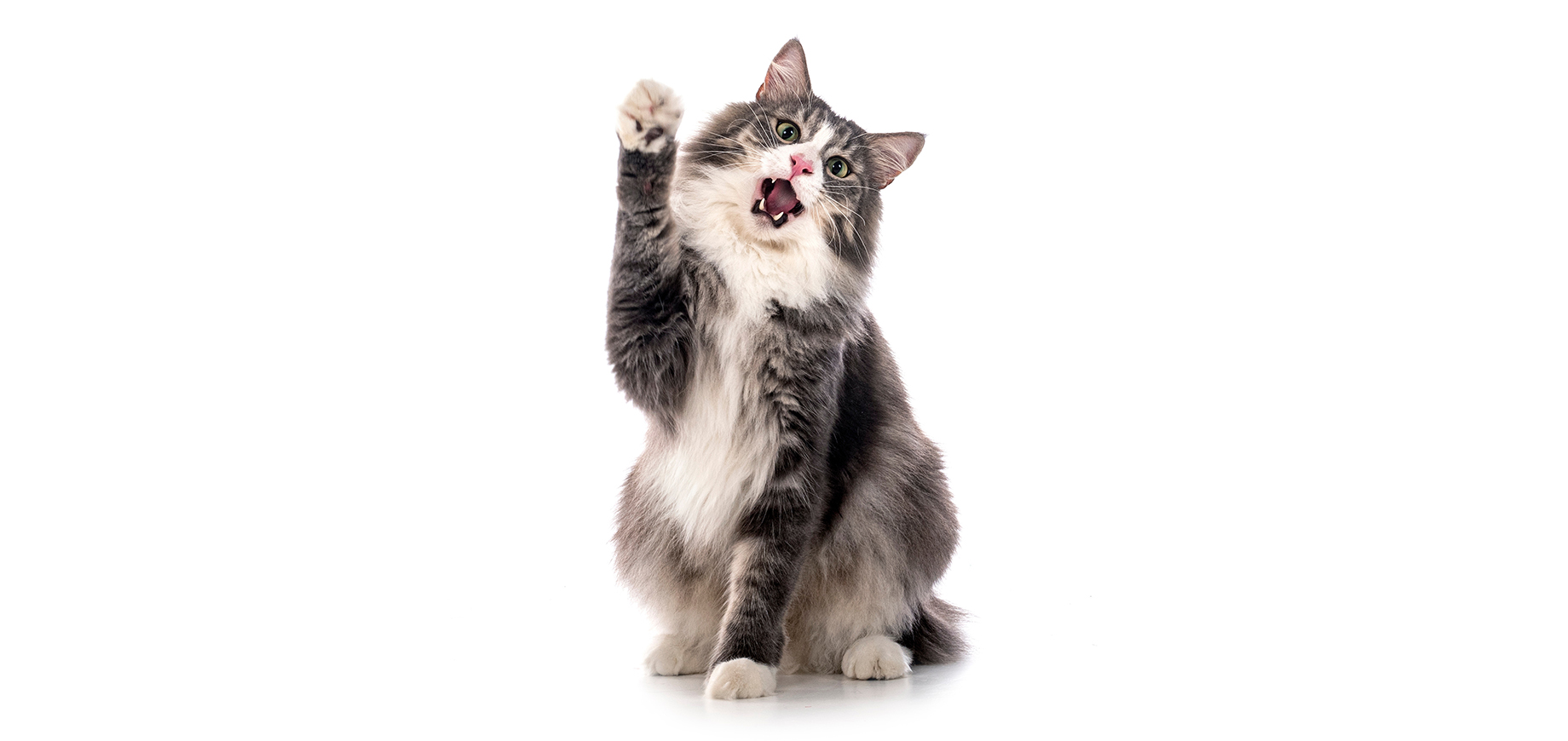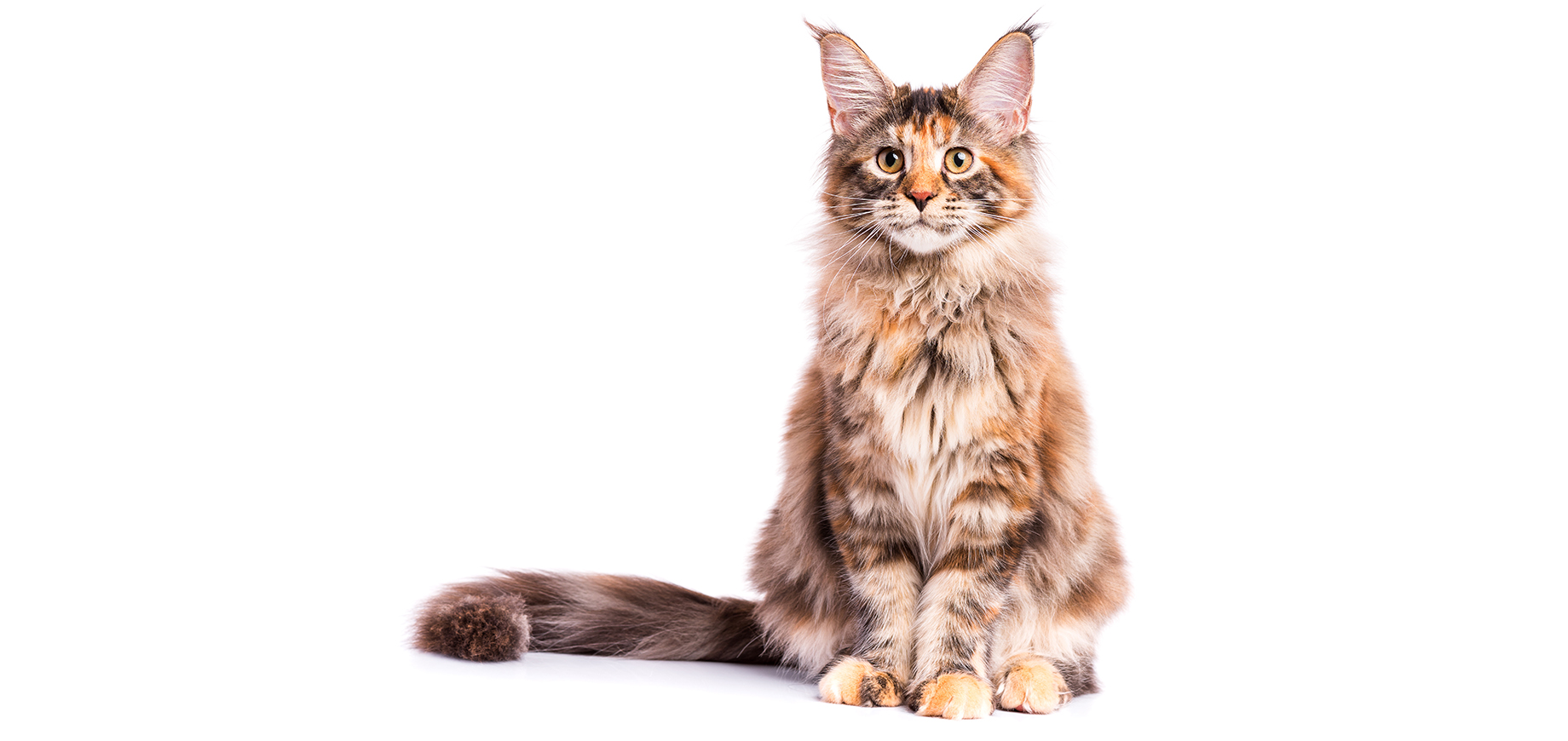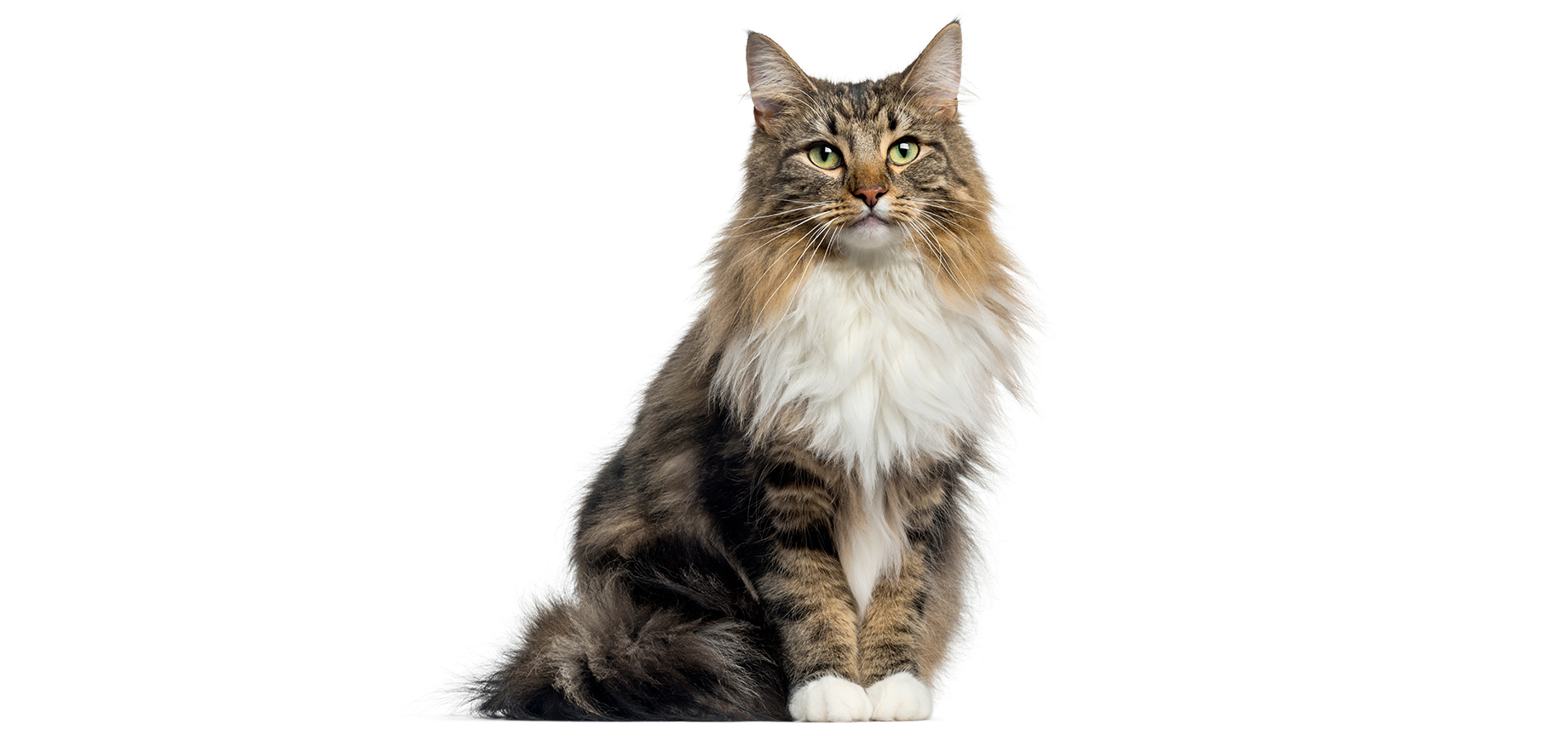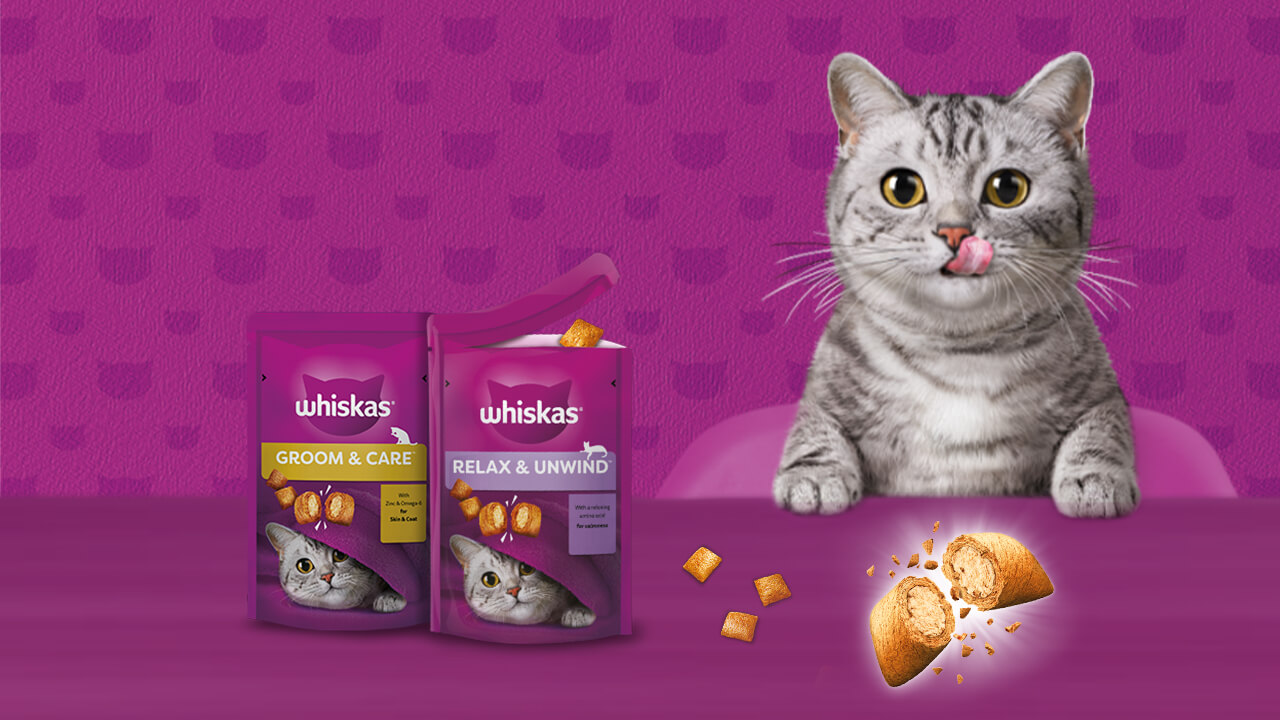Siberian cat breed – characteristics, care & facts
The Siberian cat is an ancient and cherished breed that’s built to survive the coldest of winters. Originating in Russia, these cats boast a majestic water-resistant coat, designed to protect them from freezing temperatures and harsh conditions. Known for their affectionate, intelligent, and playful nature, Siberian cats can form strong bonds with their owners. Their friendly and adaptable personality generally makes them well-suited for families with young children or other pets, as well as first-time cat owners. This in-depth guide explores the Siberian forest cat’s history, temperament, care needs, and more. So, whether you’re considering adopting your own or just want to know more, keep reading to discover what makes this remarkable breed so special.
History & origins of the Siberian cat
This beloved breed hails from the dense forests of Russia and Siberia, where it evolved to endure extreme cold with its thick, insulated coat. First documented in the Middle Ages, Siberian cats have long been part of Russian folklore, often depicted as mystical creatures. Valued for their exceptional hunting skills, these cats played a vital role in keeping rodent populations in check in homes, farms, and monasteries. Despite their rich history, the Siberian cat has remained relatively unknown outside of Russia for centuries. It wasn’t until the late 20th century that the breed gained international recognition and in 1990, the breed was officially introduced to the United States, sparking their rise in popularity across the world. Today, Siberian cats are adored for their majestic appearance, playful personalities, and loyal nature, often waiting at the door to greet their owners. They also have a distinctive triple purr and chirping sound, adding to their endearing and expressive character.
What are Siberian cats known for?
The Siberian cat is best known for their hypoallergenic qualities, as the breed produces lower levels of Fel d 1, the primary allergen responsible for cat allergies. While no breed is completely hypoallergenic, many allergy sufferers find that they react less severely to Siberians compared to other cats. However, sensitivity varies, so it’s important to spend time with a Siberian before adopting to see how your allergies respond. Despite their thick, triple-layered coat, Siberians are surprisingly low-maintenance compared to other long-haired breeds. Their fur is naturally resistant to matting, and while they do shed, they only require regular brushing to keep their coat in top condition. Learn more about cat behaviour here.
Distinctive features and traits
There are many reasons why the Siberian cat is a favourite breed among cat lovers worldwide. Striking and powerful in appearance, these cats have a muscular, well-proportioned body, combining strength with agility. Despite their robust build, they move with precision and grace, often displaying impressive jumping and climbing skills. One of their most distinctive features is their triple-layered, water-resistant coat, which is perfectly adapted for cold climates. This dense fur, along with their bushy tail, provides excellent insulation, keeping them warm in freezing temperatures while also giving them their signature fluffy appearance. Siberian cats are also known for their large, expressive eyes, which come in a variety of colours, such as green, gold, and copper. Some may have blue or odd-coloured eyes (this is often the case for those with colourpoint coats). Their rounded faces, full cheeks, and slightly curved foreheads give them a sweet and charming expression. It’s no wonder they’ve won the hearts of so many pet owners.
Are Siberian cats friendly?
The simple answer to this question is a resounding yes. Siberian cats are affectionate, loyal, and highly sociable, making them wonderful companions for a variety of pet owners and households. Here’s a few key reasons why this breed so people-friendly:
- Siberian cats form strong bonds with their owners and often follow them around the house. They enjoy being part of family activities and may even greet you at the door when you return home.
- Their gentle and playful temperament generally makes them an ideal choice for those with children. They’re patient, enjoy interactive play, and often develop a strong connection with the younger family members.
- Many owners of this breed describe them as being quite like dogs in their nature. They’re intelligent, curious, and may even play fetch or come when called by their name.
- While they are generally sociable with other pets, it’s crucial that owners introduce a Siberian to other cats or dogs in the right way. A slow and supervised introduction helps to build positive relationships.
- Unlike a few independent cat breeds, Siberian cats thrive on companionship and don’t like being left alone for long. They’re a great choice if you’re looking for a sociable, engaging pet that likes to be petted, held, and cuddled.
Fun facts about Siberian cats
Siberian cats aren’t just cute and playful, they’re also fascinating. There’s so much to love about this breed, so here are some fun facts that make them stand out from the rest:
- Siberian cats regularly appeared in Russian myths and fairy tales, often portrayed as magical guardians or protectors of homes. Their majestic appearance and mysterious nature have long captured the imaginations of storytellers for centuries.
- These cats are quick learners. They’re intelligent and highly trainable so can be taught all sorts of tricks, including how to play fetch and how to open doors. Many owners compare their impressive problem-solving skills to those of clever dogs.
- Siberian cats thrive on mental stimulation. They love interactive toys, puzzle feeders, and games that challenge their brains. Playtime also helps to strengthen their bonds with their humans.
- Unlike most cats, the Siberian cat is actually drawn to water. Don’t be surprised if they dip their paws into sinks, bathtubs, or try to join their owners in the shower.
Care & grooming needs
How to groom a Siberian cat?
Siberian cats have a dense, triple-layered coat: the first layer is a soft, insulating undercoat, then there’s a middle layer for added warmth, and finally a long, water-resistant outer coat. Their fur is also designed to prevent matting, as natural oil distribution keeps it smooth and less prone to tangles. With all of this in mind, it’s a surprisingly low-maintenance and easy-to-care-for breed of cat. Plus, their affectionate and easygoing nature means that generally speaking, most Siberian cats tolerate brushing and washing quite well. The trick is to start a grooming routine while they’re still kittens, so they get used to the sensations. The experience may even help encourage a bond between pet and owner!
Wondering how to keep their gorgeous coat in the very best condition? Here are some simple tips:
- Use a wide-tooth comb or slicker brush to give your cat a good brush two or three times a week. It will help remove any loose hairs and reduce shedding, especially in peak shedding seasons (spring and autumn) when more frequent brushing will help manage all of that extra fluff.
- This breed has dirt-repellent fur that naturally stays clean, so they don’t really need regular baths. In fact, overbathing can strip their fur of essential oils, so if you do need to wash them, make sure to use gentle, cat-friendly products.
- A well-balanced diet that’s rich in things like Omega-3 and Omega-6 fatty acids can also play a key role in maintaining shine and softness.
- Like all cats, this breed benefits from regular ear checks and nail trims. If they’re often out and about, exploring the great outdoors, it’s worth checking their high-friction areas (like behind the ears and under the legs), as well as their paws as they may need cleaning too.
With minimal grooming needs, they’re an excellent choice for owners who want a fluffy companion without the effort and cost of constant upkeep.
Common health issues in Siberian cats
Siberian cats are a naturally hardy breed, having evolved in extreme climates where they needed to be resilient to survive. But like all animals, they can be prone to certain health conditions. While they’re generally healthy, it’s important that they get regular vet check-ups to monitor their overall wellbeing and catch any potential health issues early. Preventative care, including a balanced diet, proper exercise, and routine checks, can help give your Siberian cat a long, healthy, and happy life. Below are some of the health concerns that may be associated with this breed:
- Hypertrophic Cardiomyopathy (HCM): This is a common heart condition in cats, especially as they get older. HCM causes the thickening of the muscle around the heart, potentially leading to heart failure if left untreated.
- Polycystic Kidney Disease (PKD): While PKD is less common in Siberians, it can cause fluid-filled cysts in the kidneys, leading to kidney dysfunction over time if ignored. Symptoms may include increased thirst, frequent urination, and weight loss. Routine bloodwork and ultrasound exams can help spot this issue before it gets worse.
- Obesity: Despite being an active and playful breed, Siberian cats can get obese if their diet and exercise is not properly managed. Weight gain increases the risk of conditions including diabetes, arthritis, and heart disease. Make sure to feed them a complete and balanced diet and play with them as much as possible!
- Tooth Disease: Dental issues are common in cats, particularly issues like plaque buildup, gingivitis, and periodontal disease. If these problems are left untreated, it can lead to severe pain, infections that may affect other organs, and tooth loss. Try to regularly brush your cat’s teeth, offer dental-friendly treats, and schedule regular check ups at the vets.
How long do Siberian cats live for?
As a cat owner, you want your furry friend to survive and thrive for as long as possible. We all hope our pets live long, healthy, and happy lives, and with the right care, Siberian cats can enjoy many years by your side. On average, Siberians live 12 to 15 years, but some can reach the ripe old age of 18 years or more. Their lifespan depends on a number of factors including genetics, diet, exercise, and regular vet visits. Of course, some things are beyond our control as pet owners but there are things you can do to help support them:
- Feed your cat complete and balanced nutrition, tailored to the life-stage and life-style of the cat.This will provide them with all the nutrients they need to form a strong immune system, keep their joints healthy, and create lean muscle mass.
- Keep your naturally-energetic Siberian cats active with interactive toys, climbing towers, and engaging play sessions. These activities help prevent boredom and destructive behaviour, as well as boost their physical health.
- Regular visits to the vet help detect potential health issues early, which is crucial for preventative care and timely treatment. Vaccinations, dental care, and parasite prevention all contribute to a longer, healthier life for your beloved cat.
- Create a calm environment for your cat with hiding spots for them to relax in, sturdy scratching posts, and a consistent daily routine. A stress-free and secure space helps reduce anxiety, supporting your cat’s overall health and wellbeing.
What should a Siberian cat eat?
By nature, Siberian cats are naturally active and muscular. But a well-balanced diet is essential for keeping your Siberian cat healthy, energetic, and at a good weight. Owners must consider their cat’s age, size, and activity level when planning their food intake. Think about things like:
- Understandably, kittens, adults, and senior cats have different needs when it comes to what food they need. Choose specially formulated food for each stage of their lives, so they get the right nutrients and vitamins.
- All cats are obligate carnivores meaning that they need to eat a meat based diet in order to survive. Look for cat food with high-quality proteins like meat or fish as the main ingredient.
- While it often comes from a place of love, overfeeding your cat isn’t a kind thing to do. It can lead to obesity, which can shorten your cat’s lifespan. Make sure you always follow the feeding guidelines based on the breed’s weight and activity level. You can always adjust portions as needed too.
- A mix of wet and dry food can be beneficial, as wet food provides some hydration, while dry kibble helps to maintain good dental health.
- Remember to change your cat’s drinking water often. Always provide clean, fresh water to keep your cat hydrated and support kidney health.
Conclusion
Siberian cats make wonderful pets because the Siberian cat personality is affectionate and playful. They can be a friendly, intelligent, and adaptable cat breed, fitting well into a variety of households, from busy families to single owners. Despite their thick, luxurious coat, they are surprisingly low-maintenance when it comes to grooming. To give your cat the best chance of living a long and healthy life, it's essential to provide them with a nutritious diet, plenty of physical and mental stimulation, and regular vet check-ups. If you're thinking about welcoming a Siberian cat into your home, consider adopting one from a shelter or rescue. Many of these beautiful cats are waiting for a second chance at life in a safe and loving place.
Are Siberian cats a good pet?
Yes, Siberian cats make good pets. They’re a friendly and affectionate breed that bonds well with their owners. Because they’re easy to get on with, these “dog-like” cats are a great choice for families with young children and other pets. Despite having thick fur, they require a simple grooming routine.
What is the difference between a Maine Coon and a Siberian cat?
The difference between the two breeds is that Maine Coons have larger, longer bodies and a shaggier, water-repellent coat. Siberian cats are more compact and muscular in shape, with a thick, triple-layered coat. Both breeds are affectionate but Siberian cats are more energetic in comparison to the laidback Maine Coon.
How much does a Siberian cat cost in the UK?
The cost of a Siberian cat in the UK is around £800 to £2,000, depending on the breeder, pedigree, and location. Consider adopting a cat from a shelter, as fees are usually between £100 and £300. Make sure you choose a reputable breeder or consider adopting from a rescue centre.
Can Siberian cats be indoor cats?
Yes, Siberian cats can live indoors if they have good levels of physical and mental stimulation. They’re a naturally active and intelligent breed, so they need to have interactive toys, climbing structures, and playtime sessions. If possible, provide them with safe outdoor access, like a secure garden or leash training.














